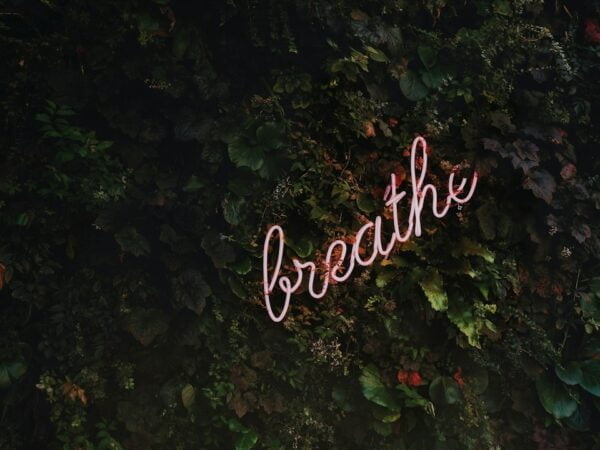
Clear Your Mind: 5 Healthy Habits for Achieving Mental Clarity
Mental clarity is a state of mind that allows us to think clearly, make decisions effectively, and focus on the task at hand. It is essential for overall well-being and productivity in both our personal and professional lives. When our minds are clear, we are better able to handle stress, solve problems, and achieve our goals. In this blog post, we will discuss five healthy habits that can improve mental clarity and help us lead more fulfilling lives.
Key Takeaways
- Mental clarity is important for overall well-being and productivity.
- Getting enough sleep is crucial for mental clarity.
- Practicing mindfulness can help improve mental clarity.
- Regular exercise and a healthy diet can also contribute to mental clarity.
- Taking breaks and practicing self-care are important habits for maintaining mental clarity.
Habit 1: Get Enough Sleep
One of the most important habits for improving mental clarity is getting enough sleep. Lack of sleep can lead to brain fog, decreased cognitive function, and difficulty concentrating. Aim for 7-9 hours of sleep per night to ensure that your brain has enough time to rest and recharge.
There are several tips for improving sleep quality. First, establish a consistent sleep schedule by going to bed and waking up at the same time every day, even on weekends. This helps regulate your body’s internal clock and promotes better sleep. Create a relaxing bedtime routine that includes activities such as reading a book or taking a warm bath to signal to your body that it’s time to wind down. Avoid caffeine and electronic devices before bed, as they can interfere with sleep quality.
Habit 2: Practice Mindfulness
Mindfulness is the practice of being fully present in the moment and non-judgmentally aware of one’s thoughts and feelings. It can help reduce stress, improve focus, and enhance mental clarity. There are several techniques for practicing mindfulness, such as meditation and deep breathing exercises.
Meditation involves sitting quietly and focusing your attention on your breath or a specific object. Start with just a few minutes each day and gradually increase the duration as you become more comfortable with the practice. Deep breathing exercises involve taking slow, deep breaths in through your nose and exhaling slowly through your mouth. This can help calm your mind and reduce stress.
Habit 3: Exercise Regularly
| Exercise Regularly Metrics | Values |
|---|---|
| Number of days per week exercising | 3 |
| Average duration of exercise | 45 minutes |
| Types of exercise | Cardio, Strength Training, Yoga |
| Calories burned per week | 1500 |
| Improvement in overall fitness level | 5% |
Regular exercise is not only beneficial for physical health but also for mental clarity. Exercise releases endorphins, which are natural mood boosters, and improves cognitive function. It can also reduce stress and anxiety, allowing for better mental focus.
Incorporating exercise into your daily routine doesn’t have to be complicated. Find activities that you enjoy, such as walking, jogging, dancing, or playing a sport. Aim for at least 30 minutes of moderate-intensity exercise most days of the week. If you’re short on time, break it up into shorter sessions throughout the day.
Habit 4: Eat a Healthy Diet
A healthy diet is crucial for optimal brain function and mental clarity. Certain nutrients, such as omega-3 fatty acids, antioxidants, and vitamins B6 and B12, are particularly important for brain health. Include foods rich in these nutrients in your diet to support mental clarity.
Foods to include in your diet for improved mental clarity include fatty fish like salmon, blueberries, turmeric, leafy greens like spinach and kale, nuts and seeds, and whole grains. Avoid processed foods, sugary snacks, and excessive caffeine, as they can negatively impact brain function.
Habit 5: Take Breaks and Practice Self-Care

Taking breaks and practicing self-care are essential for reducing stress and improving overall well-being. When we are constantly working or pushing ourselves without breaks, our minds become overwhelmed and our mental clarity suffers. Taking regular breaks throughout the day allows our brains to rest and recharge.
There are many self-care activities that can help reduce stress and improve mental clarity. Some ideas include taking a bath, going for a walk in nature, practicing yoga or tai chi, journaling, listening to music, or spending time with loved ones. Find activities that bring you joy and make them a regular part of your routine.
How These Habits Improve Mental Clarity
Each of these habits can improve brain function and reduce stress, leading to improved mental clarity. Getting enough sleep allows our brains to rest and recharge, improving cognitive function and focus. Practicing mindfulness helps us stay present in the moment and reduces stress, allowing for better mental clarity. Regular exercise releases endorphins and improves cognitive function. Eating a healthy diet provides the nutrients necessary for optimal brain function. Taking breaks and practicing self-care reduce stress and improve overall well-being, leading to improved mental clarity.
Additional Tips for Achieving Mental Clarity
In addition to the five habits discussed above, there are several other tips for improving mental clarity. One tip is to reduce screen time, as excessive use of electronic devices can lead to mental fatigue and decreased focus. Set boundaries around your screen time and take regular breaks from screens throughout the day.
Staying hydrated is also important for mental clarity. Dehydration can lead to fatigue, difficulty concentrating, and brain fog. Aim to drink at least 8 cups of water per day, or more if you are physically active or in a hot climate.
The Connection Between Mental Clarity and Productivity
Improved mental clarity can lead to increased productivity and better decision-making. When our minds are clear, we are better able to focus on the task at hand and make informed decisions. We are also more efficient in completing tasks, as we are not distracted by mental fog or stress.
By incorporating these healthy habits into your daily routine, you can improve your mental clarity and overall well-being. Remember that it takes time and consistency to develop new habits, so be patient with yourself as you work towards incorporating these changes into your life. With practice, you will notice improvements in your mental clarity and productivity, leading to a more fulfilling life.
FAQs
What are healthy habits for mental clarity?
Healthy habits for mental clarity include getting enough sleep, eating a balanced diet, staying hydrated, exercising regularly, practicing mindfulness and meditation, and reducing stress.
How does sleep affect mental clarity?
Sleep is essential for mental clarity as it allows the brain to rest and recharge. Lack of sleep can lead to fatigue, difficulty concentrating, and memory problems.
What foods can improve mental clarity?
Foods that can improve mental clarity include those rich in omega-3 fatty acids, such as salmon and walnuts, as well as fruits and vegetables that are high in antioxidants, such as blueberries and spinach.
Why is hydration important for mental clarity?
Staying hydrated is important for mental clarity as dehydration can lead to fatigue, headaches, and difficulty concentrating. Drinking enough water can help improve cognitive function and mood.
How does exercise improve mental clarity?
Exercise can improve mental clarity by increasing blood flow to the brain, reducing stress, and releasing endorphins, which can improve mood and cognitive function.
What is mindfulness and how does it improve mental clarity?
Mindfulness is the practice of being present and fully engaged in the current moment. It can improve mental clarity by reducing stress and anxiety, improving focus and attention, and promoting a sense of calm and well-being.
What are some ways to reduce stress for better mental clarity?
Ways to reduce stress for better mental clarity include practicing relaxation techniques such as deep breathing or yoga, getting regular exercise, spending time in nature, and engaging in activities that bring joy and relaxation.


















